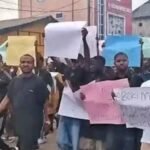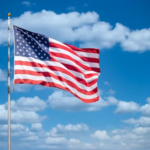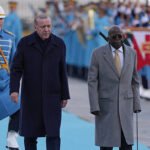By Dr. Huseyn Zakaria Mohammed
In the quiet hours before dawn in Nigeria, as I rise for Tahajjud (the voluntary midnight prayer), my heart burns and tears flow endlessly—for Gaza. The pain is not mine alone; I am sure it echoes through the soul of every believing Muslim and every human being with a conscience.
Our beloved Prophet Muhammad (peace and blessings be upon him) taught: “Whoever among you sees an abomination, let him change it with his hand; if he cannot, then with his words; if he cannot, then with his heart—and that is the weakest of faith.”
Today, Gaza is the abomination. Unfortunately, my hands cannot reach it. But my words, God willing, can bear witness to its agony.
Gaza’s Unspeakable Agony
Since the October 7, 2023, Hamas attack that claimed 1,200 Israeli lives and led to the capture of 250 hostages, Israel has launched a campaign that is nothing short of catastrophic. The figures are staggering: more than 62,000 Palestinians have been killed, including tens of thousands of women and children, and over 100,000 injured. These numbers are not just statistics—they are shattered families, dreams buried in rubble, lives extinguished while the world watches.
Over 80 per cent of Gaza’s 2.4 million people have been forcibly displaced. Entire neighborhoods lie in ruins. Hospitals have been bombed, schools flattened, and basic necessities like food, water, and electricity deliberately cut off. The United Nations and Al Jazeera now warn of an impending famine, with 1 in 5 Gazans expected to face starvation by September 2025.

On April 16, 2025, fifteen children were killed in a single airstrike while playing football in Al-Maghazi camp. Their laughter was silenced in an instant. Those children could have been yours. They could have been mine.
A Calculated Siege, a Collective Punishment
The systematic destruction of Gaza is not war—it is collective punishment, a war crime under international law.
According to Amnesty International and proceedings at the International Court of Justice, the Israeli campaign may amount to genocide. Babies die not from bombs alone, but from hunger, dehydration, and untreated infections.
Gaza’s entire population is being subjected to what one UN expert called “an extermination in slow motion.”
A nurse from Gaza recently said, “We’re not just dying from bombs. We’re dying from hunger. From no hope.”
The West’s Complicity in Genocide
The role of the so-called civilized world is not one of bystander, but of enabler. The United States sends $3.8 billion annually in military aid to Israel—funds used to supply the very bombs that destroy hospitals and homes.
The U.S. has also vetoed multiple United Nations ceasefire resolutions, shielding Israel from accountability.
In a recent Middle East visit, former U.S. President Donald Trump sealed over $600 billion in Gulf business deals while speaking dismissively of Gaza’s suffering. His comments suggesting Gaza could be transformed into a “Riviera” or a “free zone” are not just insensitive—they are grotesque.
Across Europe, public sentiment is increasingly in support of Palestinian rights, yet governments have been hesitant to act. The United Kingdom has paused trade talks with Israel and sanctioned a few illegal settlers. The European Union’s long-delayed review of its €46 billion trade agreement with Israel lacks urgency. Of the €1.6 billion pledged in humanitarian aid to Gaza, most remains undelivered.
Betrayal by Arab Leaders
But perhaps the deepest betrayal comes from within the Muslim world. Many Arab governments, bound more by economic interest than Islamic brotherhood, have failed Gaza. The May 17, 2025, Arab Economic Summit was a display of hollow speeches and minimal action. Only 42% of Gaza’s urgent aid needs were pledged.
Even worse, some Arab states have reportedly shared intelligence with Israel and maintained backdoor diplomacy, prioritizing normalization over justice. One cannot help but feel that their silence is not a diplomatic strategy, but cowardice.
Their palaces are lit while Gaza remains in darkness. Their tables are full while Gaza starves. Their words of concern are drowned by the silence of their complicity.
A popular post on social media asks: “Where is the Ummah’s heart?” Today, the answer remains unclear.
A Global Pattern of Injustice
Gaza’s plight is not unique. From Iraq to Libya, from Yemen to Afghanistan, we see a pattern: weaker nations reduced to ashes under the guise of security, democracy, or counterterrorism. It is always the innocent who pay the highest price.
The recent plan to relocate 1 million Gazans to Libya raises alarming questions. Such a move, under duress and blockade, may amount to ethnic cleansing—yet another chapter in the long book of displacement and dispossession that Palestinians have endured for generations.
Our Shared Pain and Duty
As a Nigerian, I feel Gaza’s pain not as an outsider, but as a fellow victim of global injustice. I see echoes of our struggles in their suffering—the indifference of power, the betrayal of allies, and the resilience of faith.
Students protesting Gaza’s destruction are being arrested in the U.S., the UK, and even parts of Africa. Over 3,000 students have been detained in America alone for simply raising their voices.
Their courage gives me hope.
A Final Plea from Faith and Conscience
I write this article with tears in my eyes, but faith in my heart. I write not to accuse blindly, but to awaken the world to its conscience.
To the United States and its allies: Your democracy loses meaning when it supports genocide. If you truly value human rights, impose sanctions, stop arms sales, and demand a permanent ceasefire.
To Arab and Muslim leaders: History will remember your silence. End the blockade. Use your wealth to rebuild, not to entertain guests who justify Gaza’s destruction.
To the United Nations and humanitarian agencies: Do not stop speaking. Do not stop sending aid. Do not stop bearing witness. The 350 aid workers who died in Gaza died as heroes; the world will never forget them.
To my fellow human beings everywhere: You may not have power or weapons, but you have a voice. If you can’t act with your hands, speak with your tongue. If you can’t speak, let your heart burn with grief and resolve—for even that, as our Prophet said, is an act of faith.
A Prayer for Gaza, A Flame of Resistance
As dawn breaks again in Nigeria, I return to my mat, lift my hands in du’a, and fervently say, “O Lord, You are the Most Wise. If hardship is written, then grant resilience and victory in the end. Let Your light pierce through darkness, and let Your justice be swift. You never abandon those who call upon You sincerely.”
Let this article be my cry for Gaza. Let it ignite something in every reader’s soul. Gaza is not just a location on a map—it is a test of our shared humanity.
For Gaza. For truth. For justice.
Let us rise.

About the Author:
Sheikh (Dr.) Huseyn Zakaria Mohammed is an Islamic scholar, humanitarian, an Ambassador for Peace, and an advocate for justice. He is a teacher, consultant, and researcher specializing in Islamic ethics, gender justice, and cryptocurrency in Islamic finance. He resides in Abuja, Nigeria.










